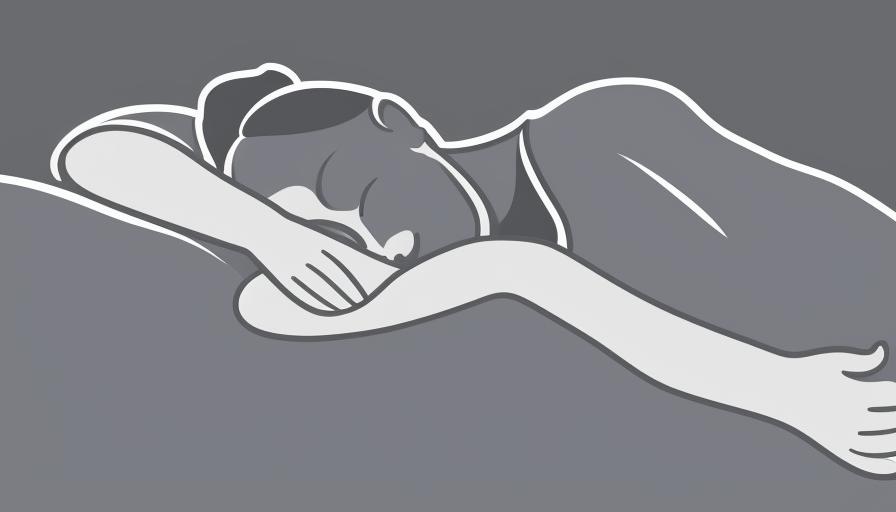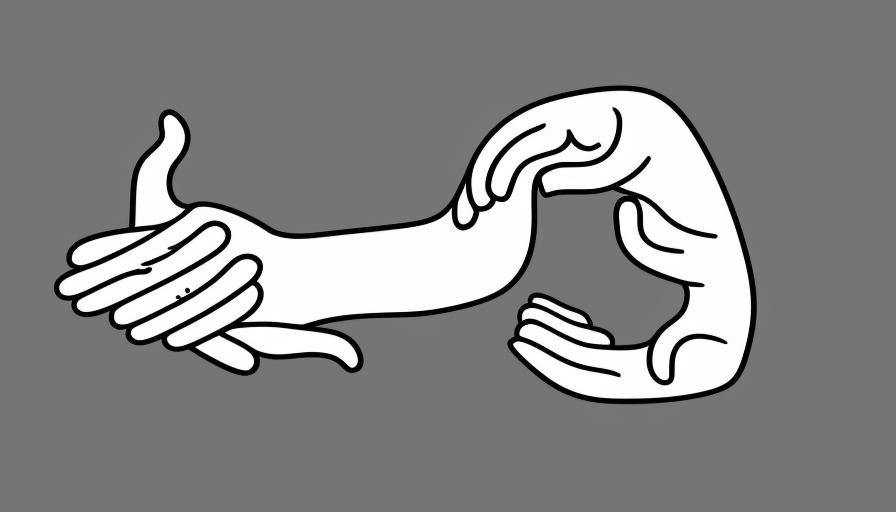Did you know that the position of your hands while sleeping can actually reveal a lot about your inner thoughts and emotions? It’s true! In fact, studies have shown that the way we hold our hands during sleep can provide insights into our subconscious mind.
By paying attention to how you position your hands at night, you may gain a deeper understanding of yourself and your well-being. So, why does this matter? Well, when it comes to safety, knowing what your hand positions mean can help identify any potential issues or concerns that may be affecting your sleep quality.
Table of Contents
Key Takeaways
- Hand positions during sleep can reveal subconscious thoughts and emotions.
- Sleeping with hands under the pillow improves neck and shoulder alignment and reduces discomfort.
- Clenching fists during sleep indicates stress, tension, and unresolved emotions.
- Paying attention to body signals during sleep can help address emotional issues or seek professional help.
Hands Under the Pillow

As you sleep with your hands nestled under the pillow, it feels like they’re cradling precious secrets in the depths of slumber. This sleep posture, known as hands under the pillow, can have a significant impact on your neck and shoulder alignment.
When you position your hands under the pillow while sleeping, it helps maintain a neutral spine alignment. The pillow acts as a support for your head and neck, ensuring that they’re aligned properly. This is crucial for reducing strain on these areas and preventing potential discomfort or pain.
By keeping your hands under the pillow, you’re also less likely to toss and turn during the night. This means fewer chances of waking up with a stiff neck or sore shoulders. Instead, you’ll wake up feeling refreshed and ready to tackle the day ahead.
It’s important to note that not everyone finds this sleep posture comfortable or beneficial. If you have any pre-existing conditions such as arthritis or carpal tunnel syndrome, it may be best to consult with a healthcare professional before adopting this position.
Sleeping with your hands under the pillow can contribute to proper sleep posture and improve neck and shoulder alignment. Give it a try if you desire safety and want to wake up without any discomfort in these areas.
Clenched Fists

When curled up in dreamland, our fists often become tiny warriors battling the shadows of our slumber. Clenched fists while sleeping may seem like a harmless position, but it carries a significant meaning in terms of subconscious body language and sleeping position significance.
Clenching your fists during sleep is often associated with feelings of stress, tension, or even aggression. It suggests that you may be holding onto unresolved emotions or grappling with inner turmoil. This position can also indicate a need for self-protection and an unconscious desire to defend yourself against perceived threats.
While clenched fists during sleep might not directly pose any physical harm, it’s essential to pay attention to your body’s signals. If this position becomes persistent or accompanied by other signs of distress, it could be a sign that you need to address underlying emotional issues or seek professional help.
To ensure safety and promote better sleep quality, try relaxation techniques before bedtime such as deep breathing exercises or gentle stretches. Creating a peaceful sleep environment free from distractions can also contribute to a more restful night’s rest.
Open Palms

Our palms wide open while we sleep can symbolize vulnerability and a willingness to let go of control, inviting a sense of peace and surrender into our dreams. This position, known as open palms, is not only comfortable but also carries important meanings. When we sleep with our palms facing upwards, it promotes peaceful relaxation by releasing tension in the muscles and joints. The relaxed state of the hands signals to the body that it is safe and secure, allowing for a deeper and more restful sleep.
In addition to promoting relaxation, sleeping with open palms also has physical benefits. This position increases blood circulation throughout the hands and fingers. Improved blood flow ensures that oxygen and nutrients reach these areas more efficiently, aiding in their overall health and function. It can also prevent numbness or tingling sensations that may occur when pressure is applied to certain nerves.
To further understand the significance of open palms during sleep, let’s take a look at this table:
| Position | Symbolism |
|---|---|
| Clenched Fists | Tension or unresolved emotions |
| Open Palms | Vulnerability and willingness to let go |
Hands on the Chest

When you sleep with your hands on your chest, it can indicate emotional vulnerability. This position suggests that you may be open and receptive to others’ feelings, allowing yourself to connect deeply on an emotional level.
At the same time, this positioning can also signify self-protection and guardedness, as if you’re subconsciously shielding your heart from potential harm. Ultimately, sleeping with your hands on the chest showcases a delicate balance between vulnerability and protection in the realm of emotions.
Emotional Vulnerability
Emotional vulnerability can be symbolized by the position of our hands while sleeping, as the saying goes ‘open hands, open heart.’ When you sleep with your hands on your chest, it signifies a sense of emotional vulnerability. This position is often associated with the healing process and trust building.
To better understand this symbolism, here are three key points to consider:
- Healing process: Placing your hands on your chest during sleep indicates that you’re actively engaged in self-healing and growth. It shows that you’re willing to confront and process past wounds.
- Trust building: Sleeping with your hands on your chest suggests an openness towards trusting others. It reflects a willingness to let others into your life and share deep emotions.
- Safety: Adopting this position while sleeping creates a sense of safety within yourself. It allows you to feel protected and secure, enabling a more restful night’s sleep.
By acknowledging the significance of hand position during sleep, we can gain insight into our own emotional state and foster personal growth in our relationships.
Self-Protection and Guardedness
Self-defense mechanisms, both physical and emotional, often manifest in subconscious body language. One common example is the position of your hands while sleeping. Clenched fists or crossed arms indicate a need for self-protection, signaling that you’re closed off and not open to vulnerability or intimacy. This defensive posture may be rooted in past experiences of betrayal or hurt, causing you to build walls to shield your heart.
Does Sleeping Position Affect Digestion?
The best sleeping position for digestion can vary from person to person. Some individuals find that sleeping on their left side promotes better digestion, as it allows for the natural flow of waste through the colon. However, others may find relief by sleeping on their back with a pillow to elevate the upper body, preventing acid reflux. Ultimately, finding the right position that works for you is key.
Frequently Asked Questions
Is there any significance to sleeping with clenched fists?
Sleeping with your hands in a fist can have both medical implications and a psychological interpretation.
Medically, it could indicate tension or stress in the muscles and joints of your hands.
Psychologically, it may suggest feelings of anger, frustration, or anxiety.
It’s important to pay attention to your body’s signals and address any underlying issues causing this sleep position.
Consider talking to a healthcare professional for further evaluation and guidance on how to achieve a more relaxed and comfortable sleep position.
What does it signify if someone sleeps with their palms facing upwards?
In some cultures, it’s believed that sleeping with your hands in this position allows for the flow of positive energy throughout the body. While there may not be concrete scientific evidence to support these claims, cultural beliefs surrounding sleep positions can offer a sense of comfort and security.
Always prioritize your own comfort and safety when choosing a sleep position.
Why do some people prefer to sleep with their hands on their chest?
Sleeping with your hands on your chest can have psychological reasons and cultural significance.
Psychologically, it may provide a sense of comfort and security, as if protecting the heart. This position could also be influenced by cultural and historical practices, such as religious beliefs or traditional customs.
Are there any health benefits associated with different sleeping hand positions?
Sleeping hand positions and their impact on sleep quality can vary from person to person. However, there isn’t any scientific evidence to suggest any direct health benefits associated with specific hand positions during sleep.
That being said, maintaining good overall body alignment while sleeping is important for a comfortable and safe rest. It’s always recommended to find a position that supports proper spinal alignment and minimizes any potential discomfort or strain on your joints.
Conclusion
So, the position of your hands while you sleep may seem like a trivial detail, but it can actually reveal a lot about your emotions and state of mind. Whether you find comfort in tucking them under your pillow or prefer to rest with clenched fists, each position carries its own significance.
So next time you wake up, take a moment to reflect on the position of your hands and what it might be telling you.
- 10 Dreamy Victorian-Inspired Bedroom & Sleepwear Sets - May 13, 2025
- 10 Best Cottagecore Bedroom Sets With Matching Sleepwear - May 13, 2025
- Why Leopard Print Makes Perfect Sleep-To-Style Moments - May 13, 2025

